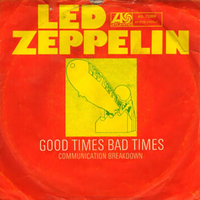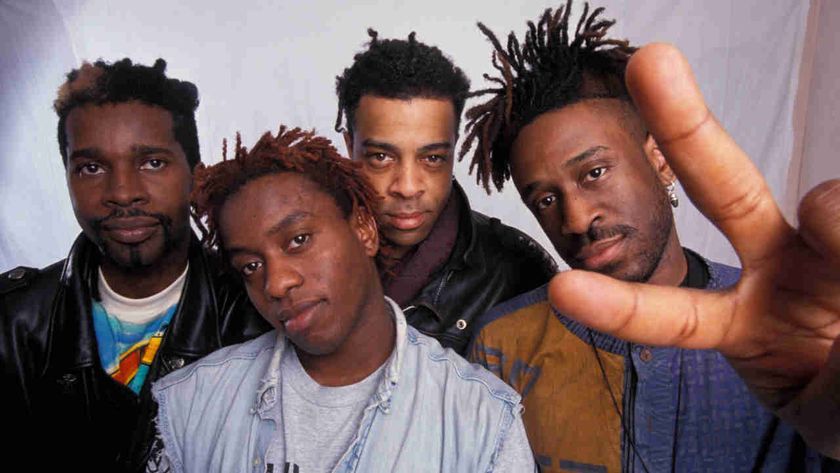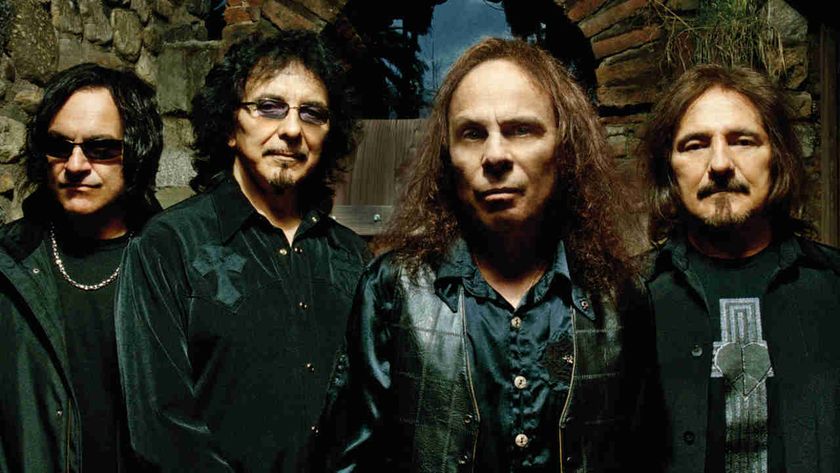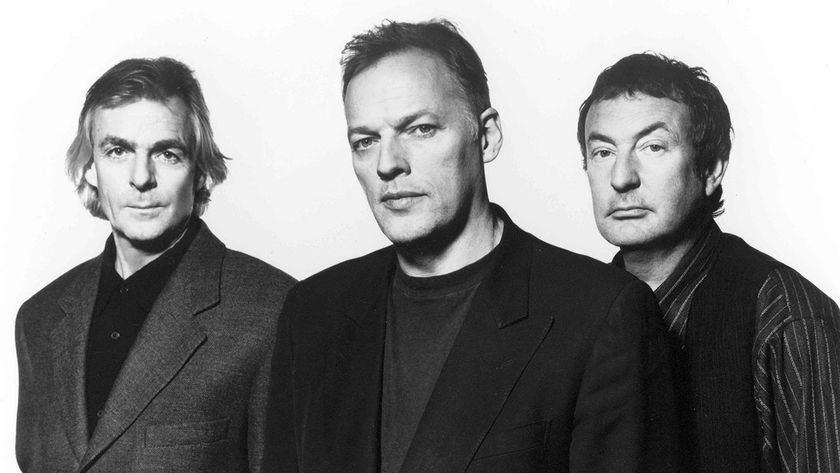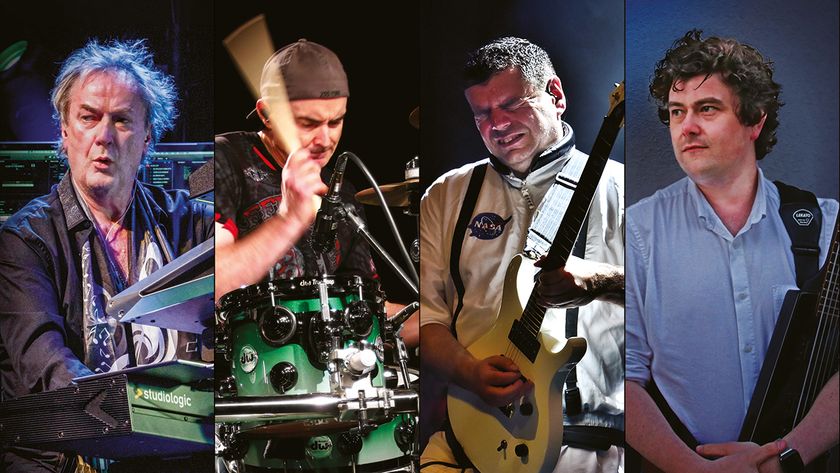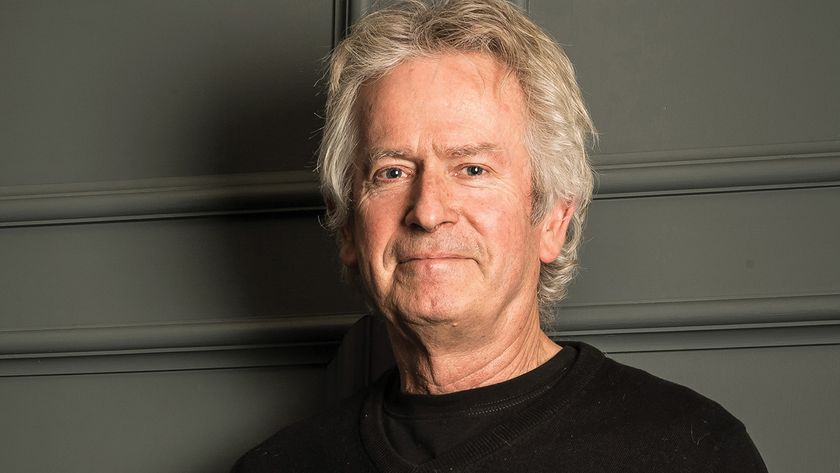20. Good Times Bad Times (Led Zeppelin, 1969)
Right from the dramatic two beat opening, John Bonham leads this track and puts the whole kit through its paces. That pioneering use of bass drum triplets heralded the arrival of a very special drummer. Doing things with a bass pedal that it took two of James Brown’s drummers to try and emulate – and they knew a bit about rhythm. Rolling Stone cited this song when they named John Bonham as the world's best drummer in 2016, saying: “Jimmy Page was still amused by the disorienting impact that Good Times Bad Times, with its jaw-dropping bass-drum hiccups, had on listeners: ‘Everyone was laying bets that Bonzo was using two bass drums, but he only had one.’ Heavy, lively, virtuosic and deliberate, that performance laid out the terrain Bonham’s artful clobbering would conquer before his untimely death in 1980."
19. Thank You (Led Zeppelin II, 1969)
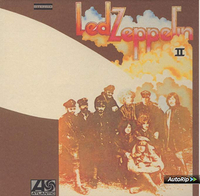
Marking the point where Plant grew into himself as a lyricist (Page: “I always knew he would”), and delivering a cracked, heartfelt paean to his wife – even if it was part motivated by guilt – there’s also some highly effective pop nous on the chorus here, curiously bolstered by Page’s relatively weak backing vocals. Widely covered, versions range from the surprisingly great (Duran Duran), the idiosyncratic (Tori Amos), to the quick-call-the-police (Fred Durst, Wes Scantlin).
18. Going To California (Led Zeppelin IV, 1971)
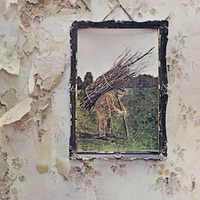
The Hollywood hiraeth felt by Page and Plant while ensconced in rural Wales manifested itself in an unadorned love letter to Joni Mitchell and other notable blissed-out dwellers of Laurel Canyon. Plant’s near-naïve reflections on his sun-kissed introduction to the state’s enchantments adds acres of charm and pathos belying his tender years. Iced by Page’s modal drone-picking and Jones’ gossamer mandolin, the version on 2003’s DVD (Earls Court, ‘75) in particular is a thing of wonder.
17. Over The Hills And Far Away (Houses Of The Holy, 1973)
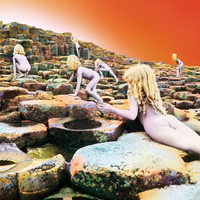
One of the features of Houses Of The Holy that producer Eddie Kramer identified to Classic Rock in 2017 is how most of the tracks have their own boutique ending: the orgasmic ‘Oh!’ at the end of The Song Remains The Same; the echoing guitar at the climax of The Rain Song. Over The Hills And Far Away (originally titled Many Many Times) finishes with a similar coda, created by Page using a reverb guitar effect with Jones’s keyboard part. “I can’t remember exactly, but I think it was something I suggested at the mixing stage,” said Kramer. “I used to do something similar with Hendrix sometimes – fade the track out, then bring it back, like an extra breath.” What really makes this track, though, he said, “is that it really shows off the Zeppelin preoccupation with light and shade, acoustic and electric”.
16. In My Time Of Dying (Physical Graffiti, 1975)
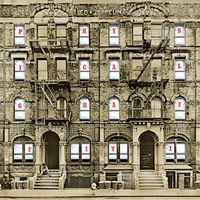
The fertile sessions for Led Zeppelin’s Physical Graffiti album produced a number of landmark songs, including In My Time Of Dying and Kashmir. This marathon work-out reaches a zenith around the seven minute mark – that’s the point Bonzo conjures up a barrage of brutal power of the kind other drummers can only dream of. Fittingly, his son Jason did the track justice at Zeppelin’s one-off reunion in 2007.
15. The Rain Song (Houses Of The Holy, 1973)
If there’s one Zeppelin song that unites people in its greatness, then it’s this smouldering, otherworldly epic. Page wrote it in response to a conversation he had with George Harrison, in which the former Beatle asked why Zep never did any ballads. Working on demos for the album at his Plumpton studio, Page came up with this epic-in-waiting with the tongue-in-cheek working title Slush – incorporating a subtle use of the opening notes of Harrison’s Something into the arrangement. At one point it was intended to have been a further extension of The Overture, but that changed when Plant added lyrics and it was retitled The Rain Song.
14. Ramble On (Led Zeppelin II, 1969)

An early reveal of the band’s beloved light/shade dynamic, Plant’s somewhat random conflation of Tolkien references with the odd tokenistic fair maiden chucked in might not make much narrative sense, but has proved to be a rock radio staple for decades. Speculation on the gently propulsive rhythm under Page’s percussive acoustic has been whittled down to John Bonham tip-tapping on either a sofa, his knee, or a guitar case. The smart money is on the latter.
13. Babe I'm Gonna Leave You (Led Zeppelin, 1969)
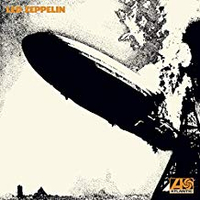
In the last decade or so, the songwriting credits on several Zep tracks have been revised to include the composer of the track that gave Page & Co. their initial inspiration – "initial inspiration” being a term used very loosely here – after the blues community raised an eyebrow and pointed out that many of the songs they'd credited to themselves were in fact long-serving standards. So, eventually, Anne Bredon’s name was added to the credits of Babe I’m Gonna Leave You (why? Well, she only sorta wrote the damn song). Robert Plant actually admitted to the Guardian in 2017 that he thinks his vocals on this 1969 track are "horrific". “I realised that tough, manly approach to singing I’d begun on You Better Run wasn’t really what it was all about at all. Songs like Babe I’m Gonna Leave You… I find my vocals on there horrific now. I really should have shut the fuck up!” Sounds alright to us, Robert.
12. Rock And Roll (Led Zeppelin IV, 1971)
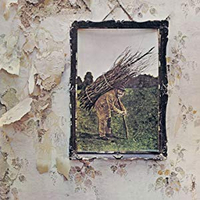
An instantly identifiable Zeppelin anthem, this track came out of a jam with Rolling Stones’ mentor Ian Stewart guesting on piano. Bonzo played the intro of Little Richard’s Keep A Knockin, and Page quickly added a suitable 1950s type riff. Fifteen minutes later, the nucleus of Rock And Roll was down on tape and a classic was born.
11. Ten Years Gone (Physical Graffiti, 1975)

Zeppelin’s creativity was at an all-time high during the Physical Graffiti sessions. Even now, Ten Years Gone is still spellbinding. Our astronaut alchemists nearing the end of their quest, heroin-soaked, cocaine-addled. Lost in the desert, wheels spinning in the sand. The struggle is beating them down, you can hear the weariness in the voice and beats, the end is near. It is prophetic, as the band arguably struggled to scale these heady heights again.
Classic Rock Newsletter
Sign up below to get the latest from Classic Rock, plus exclusive special offers, direct to your inbox!
